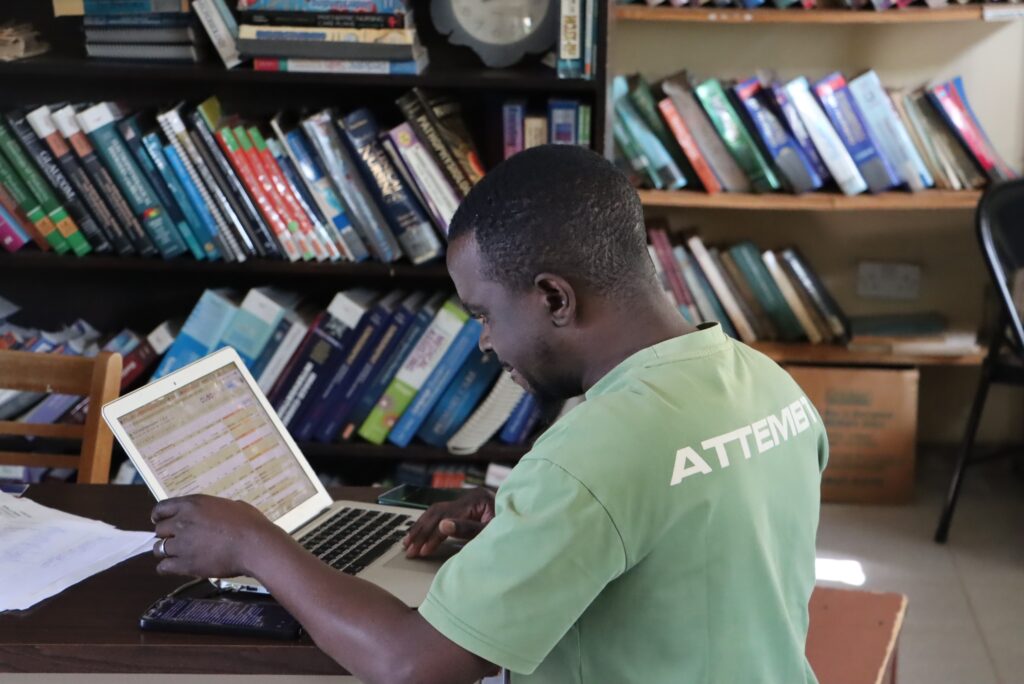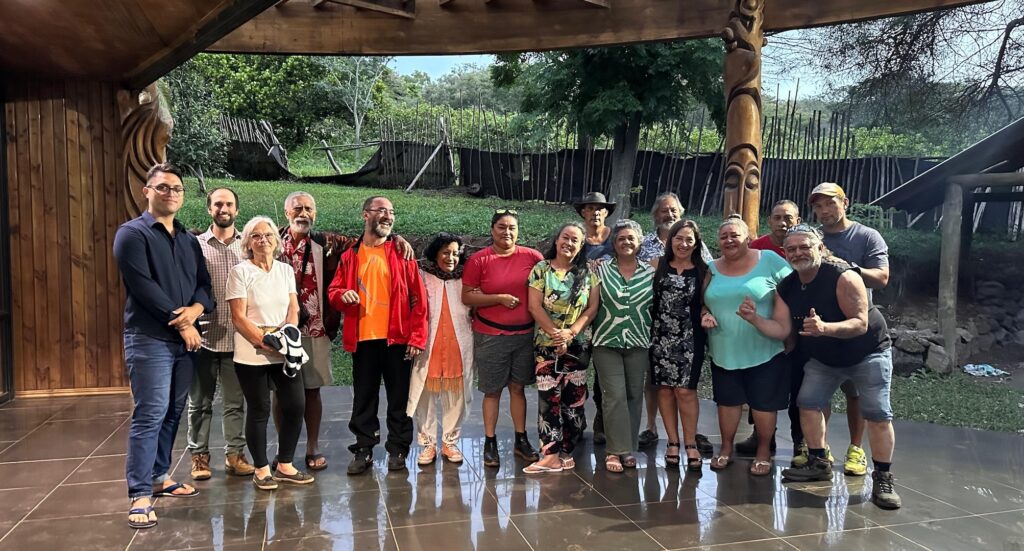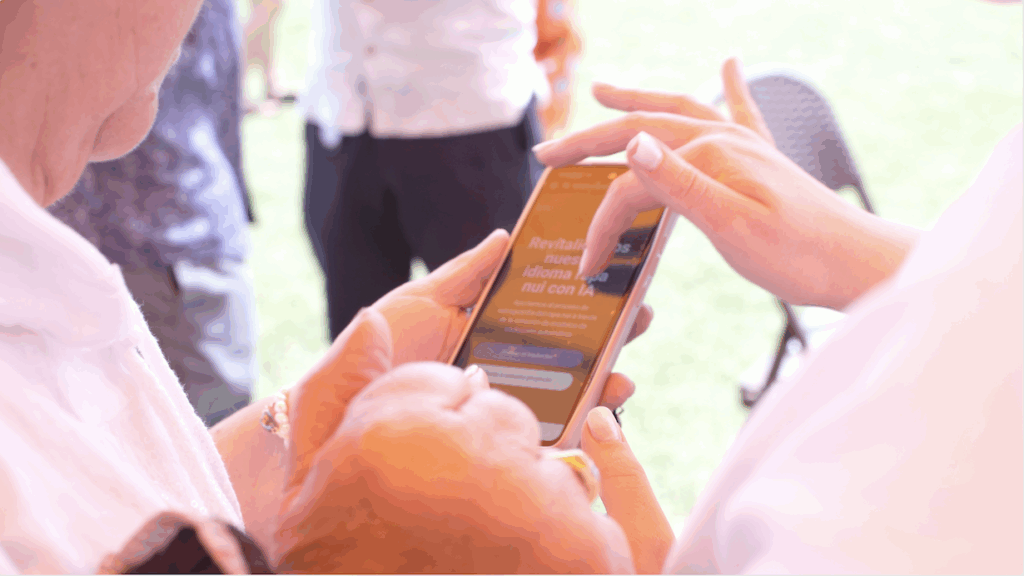What if the Internet doesn’t speak your language?
When we connect to the Internet, anything becomes possible. From staying in touch with loved ones to conducting business, studying, working, and staying informed and inspired. But what if you can’t navigate the Internet in your native language?
According to Statista, there are approximately 7,100 known living languages and dialects worldwide and an online population of 3.35 billion. However, only around ten languages dominate the Internet. English is the most widely used language online and the preferred choice for web content (about 52%), followed by Spanish, Mandarin, French, German, and Portuguese — often languages that have a European colonial history or regional influence.
So, why is an inclusive Internet important?
The goal is to break past historical power cycles and close the digital divide by building a multilingual and multicultural Internet that guarantees representation and inclusion. This is especially important for low-resource communities, where increasing Internet access aims to bridge the digital gap. However, for the Internet to truly be inclusive, improving connectivity must be combined with efforts to include community diversity, languages, and cultural representation.
Most online content is created and accessed mainly through a limited number of dominant languages. When communities cannot add or access knowledge in their own languages, it reinforces existing inequalities and invisibilities offline. Bridging the digital language divide involves providing locally relevant information in languages that communities understand, creating a multilingual space that reflects humanity’s diversity, and challenging Western, English-speaking, and Global North perspectives online.

An inclusive Internet means diverse content and representing knowledge from different cultures, while challenging platform ownership and algorithmic bias. It promotes digital justice by ensuring fair access and inclusion for the Global South, Indigenous peoples, and other underrepresented groups. Without these efforts, Western dominance risks erasing cultural and language diversity and concentrating digital power among a few.
It is about building a more inclusive digital space that values all knowledge systems. Language is especially important because it shows our ability to create and communicate. When languages lack digital support, users encounter barriers to participating in the global digital society, especially in low-resource or non-dominant languages. The Internet is not yet as multilingual as it could be, as many spoken and signed languages are underrepresented online, making the Internet less multilingual than it could be.
How do we work together to bridge the Digital Language Divide?
The Internet Society is one of the founding members of the Coalition on Digital Impact (CODI), which aims to ensure that everyone can access the Internet in their own language. This global alliance of like-minded organizations is dedicated to enabling universal participation, focusing on language to unlock the Internet’s potential worldwide. It collaborates with policymakers, industry, and nonprofits to reduce barriers to Internet access by addressing language, literacy, and cultural differences.

By encouraging global language connections, CODI aims to help people navigate the Internet in their native language. CODI emphasizes that digital access is essential for education, business, and everyday life, yet only a few languages dominate the Internet despite there being over 7,000 languages and dialects worldwide. This imbalance marginalizes communities, especially as AI becomes more integrated into daily life, speeding up linguistic homogenization.
Moreover, the Internet Society’s 2030 Strategy embodies the mission to make the Internet a resource that enriches people’s lives and acts as a force for good in society. One objective is to advance digital inclusion for underrepresented groups, such as rural women or indigenous communities, aiming to bridge the digital language divide.
Ultimately, ‘Internet for Everyone’ is a testament to the power of human-centered technology and reflects the mission of the Internet Society and Internet Society Foundation to ensure that the Internet is accessible, reliable, and safe for all. It extends beyond bytes and algorithms; it strives to give communities a voice and ensure that the Internet truly serves everyone, regardless of their language.
By prioritizing linguistic diversity and supporting community-led initiatives, we can work together toward an Internet that is not only inclusive but also culturally rich and vibrant, representing all the different languages and cultures worldwide.
How are our grantee partners working to bridge the Digital Language Divide?

The Internet Society Foundation has been supporting projects that focus on the cultural and linguistic diversity of the Internet. Grant partners are researching and implementing innovative initiatives to preserve languages online, working to digitize and protect Indigenous and minority languages as well as other underrepresented dialects. From AI-powered dictionaries and translators to communities uploading stories and ancient knowledge online, the work that grantees are doing is a significant step toward ensuring that languages and cultures have a digital presence.
The Research Grant Program grantees are developing research projects that see the Internet as a space for restorative, liberating, and transformative practices that link the past to a more just future, rather than dismissing or making traditional forms of knowledge, languages, and cultures irrelevant.
For example, the grantee partner Center for Democracy and Technology (CDT) has produced several studies on low-resource languages and content moderation in the Global South (Quechua, Tamil, Kiswahili, and different Maghrebi Arabic Dialects).
Another example is the research conducted by the grantee partner Pollicy, in collaboration with Digital Futures Lab, focusing on the use of local languages on the Internet in Uganda, Tanzania, and Ethiopia. The study highlights how the dominance of the English language on the Internet, regardless of each country’s official language, and the insufficient technological support for non-dominant languages further increase the digital divide.
The grantee partner TechSoup Global, in partnership with the Distributed AI Research Institute, studied ‘The Effect of Social Media Platforms on Neglected Countries and Diaspora Communities: An Investigation into the Eritrean Case’. The research involved creating state-of-the-art automatic speech recognition (ASR) models for Amharic and Tigrinya.
The Research grant program is also funding projects from universities that explore decolonizing the Internet and the complexities of the digital language divide, such as:
– University of California – Berkeley, with the project ‘Supporting Languages in the Digital Age,’ is building a community archive of experiences related to digitizing minority and historic writing systems
– Arizona State University, with ‘Internet for All Native Americans’, is examining how historic US federal and state grant-funded investments in Tribal broadband connectivity affect the Tribes’ right to exercise Tribal digital sovereignty
– Western Sydney University in Australia is developing a framework called ‘Decolonizing Digital Design: Towards Safe and Inclusive Digital Experiences for Children and Young People’ to gather perspectives of children in the Global South through diverse and ethical design.

Another noteworthy project comes from the grantee partner Centro Nacional de Inteligencia Artificial (CENIA) in Chile, in collaboration with the Rapa Nui Language Academy and Estudios Aplicados Antropología UC (EAA). They are creating an innovative AI-based translator focused on preserving and revitalizing the Rapa Nui language. Funded by Internet Society reserve funds and the Internet Society Foundation Building Opportunities/Leveraging Technologies (BOLT) grant program, this project was inspired by the reach of platforms like Google Translate and represents a significant milestone in protecting Rapa Nui’s cultural heritage.
But his project is not just about translation; it plays a crucial role in preserving and actively revitalizing endangered languages by making them relevant and accessible online. By diversifying the digital space, CENIA’s tools empower Rapa Nui speakers to engage with the Internet on their own terms. As community members begin to create more online content in their native languages, a new Internet is emerging—one that speaks in many voices, not just the dominant ones.
The disappearance of indigenous peoples’ languages is a worldwide concern, and indigenous communities encounter difficulties in revitalizing their native languages. The United Nations declared 2022-2032 as the International Decade of the World’s Indigenous Languages, highlighting the importance of technology and the Internet in preserving, revitalizing, and promoting these languages.
Learn more about:
24 September 2025
